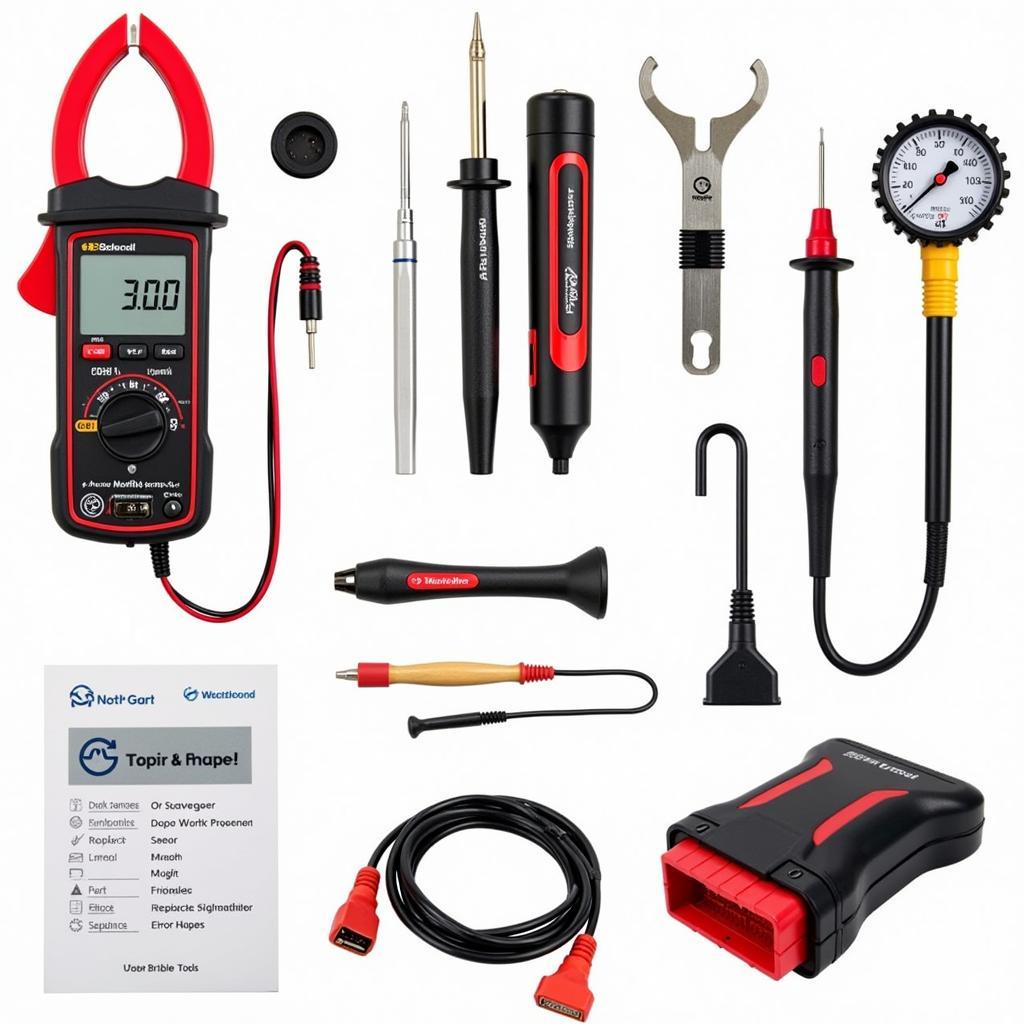Smart cars are becoming increasingly popular, and with their advanced technology, it’s crucial to understand how to maintain them properly. This guide provides a comprehensive overview of DIY maintenance for smart cars, designed for owners, repair shop owners, and technicians. We’ll delve into essential tasks, troubleshooting tips, and resources to keep your smart car running smoothly for years to come.
Why DIY Maintenance Matters for Smart Cars
Maintaining your smart car yourself offers several benefits:
- Cost Savings: DIY repairs and maintenance can significantly reduce expenses compared to professional services, especially for routine tasks.
- Increased Knowledge: Understanding your car’s systems empowers you to detect potential issues early, preventing costly repairs later on.
- Personalized Care: You can ensure your car receives the precise care it needs, tailored to your driving habits and environmental conditions.
- Enhanced Satisfaction: Completing maintenance tasks yourself provides a sense of accomplishment and strengthens your connection with your vehicle.
Basic DIY Maintenance Tasks for Smart Cars
1. Fluid Checks
- Engine Oil: Regularly check your engine oil level using the dipstick. Replace the oil according to the manufacturer’s recommendations.
- Coolant: Ensure your coolant level is within the designated range. Check for leaks or discoloration, which could indicate problems.
- Brake Fluid: Inspect the brake fluid level and ensure it’s not contaminated.
- Windshield Washer Fluid: Keep the washer fluid reservoir topped off for optimal visibility.
2. Tire Care
- Tire Pressure: Maintain proper tire pressure for optimal fuel efficiency and handling. Check pressure regularly using a tire gauge and adjust accordingly.
- Tire Rotation: Rotating your tires ensures even wear and extends their lifespan. Follow the manufacturer’s guidelines for rotation intervals.
3. Battery Maintenance
- Battery Terminals: Clean corroded battery terminals for optimal electrical conductivity.
- Battery Life: Monitor your battery’s health and replace it when necessary.
4. Air Filters
- Engine Air Filter: Replace a dirty engine air filter to ensure optimal airflow and performance.
- Cabin Air Filter: A clean cabin air filter provides fresh, clean air inside your vehicle.
5. Other DIY Tasks
- Light Bulbs: Replace burned-out bulbs, ensuring they meet the car’s specifications.
- Wiper Blades: Replace worn wiper blades for optimal visibility in all weather conditions.
- Regular Cleaning: Keep your car clean inside and out to prevent dirt and grime buildup, which can lead to damage.
Troubleshooting Common Smart Car Issues
1. Battery Problems
- Dead Battery: Check the battery terminals for corrosion and ensure proper connection.
- Slow Cranking: A weak battery can cause slow cranking. Test the battery’s voltage with a voltmeter.
- Battery Drain: Identify and disconnect any accessories that might be draining the battery when the car is off.
2. Electrical Problems
- Malfunctioning Lights: Check the bulbs, fuses, and wiring for any issues.
- Electrical Shorts: Identify and repair any loose wiring or damaged connections.
3. Engine Problems
- Rough Idling: Check the air filter, spark plugs, and fuel system for potential issues.
- Engine Misfires: Inspect the spark plugs, ignition wires, and fuel injectors.
 Smart Car Diagnostic Tools
Smart Car Diagnostic Tools
4. Drivetrain Problems
- Transmission Slippage: Check the transmission fluid level and condition.
- Wheel Bearing Noise: Inspect the wheel bearings for wear and tear.
DIY Resources for Smart Car Maintenance
1. Online Resources:
- Manufacturer Websites: Consult your smart car manufacturer’s website for owner’s manuals, repair guides, and technical bulletins.
- Online Forums: Connect with other smart car owners on forums to exchange tips, troubleshoot problems, and find DIY guides.
2. Apps:
3. Tools and Equipment:
- Basic Tool Set: Invest in a good set of wrenches, screwdrivers, and sockets for general repairs.
- Torque Wrench: A torque wrench is essential for tightening bolts to the correct specifications.
- Digital Multimeter: A digital multimeter helps you test electrical components, such as batteries and fuses.
- Tire Gauge: Regularly check your tire pressure with a tire gauge.
Expert Insights on DIY Smart Car Maintenance
“Don’t be intimidated by the technology in smart cars,” says John Smith, a seasoned automotive technician. “Most maintenance tasks are still straightforward and can be done with the right tools and knowledge. Start with basic checks and gradually expand your DIY skills as you gain experience.”
Sarah Jones, a passionate smart car owner, adds, “DIY maintenance has saved me a lot of money and helped me better understand my car. It’s empowering to take care of my vehicle myself, and it’s a lot more enjoyable than taking it to the shop.”
 Smart Car Owner’s Manual
Smart Car Owner’s Manual
FAQ
1. What is the most important DIY maintenance task for smart cars?
The most crucial task is regularly checking the fluid levels, including engine oil, coolant, brake fluid, and windshield washer fluid.
2. How often should I service my smart car?
Follow the manufacturer’s recommended service intervals for your specific model.
3. What are some common DIY maintenance mistakes?
Avoid overtightening bolts, using the wrong tools, and neglecting safety precautions when working on your car.
4. Can I DIY all smart car maintenance?
While you can handle basic maintenance yourself, some repairs require professional expertise and specialized equipment.
5. Where can I find DIY instructions for my smart car?
Refer to your owner’s manual, manufacturer’s website, online forums, and automotive repair guides.
Conclusion
DIY maintenance for smart cars is a rewarding and cost-effective practice for owners and technicians. With a little knowledge, the right tools, and this guide, you can keep your smart car running smoothly for years to come.
If you have any questions or need additional guidance, please contact AutoTipPro at +1 (641) 206-8880 or visit our office at 500 N St Mary’s St, San Antonio, TX 78205, United States.







Leave a Reply